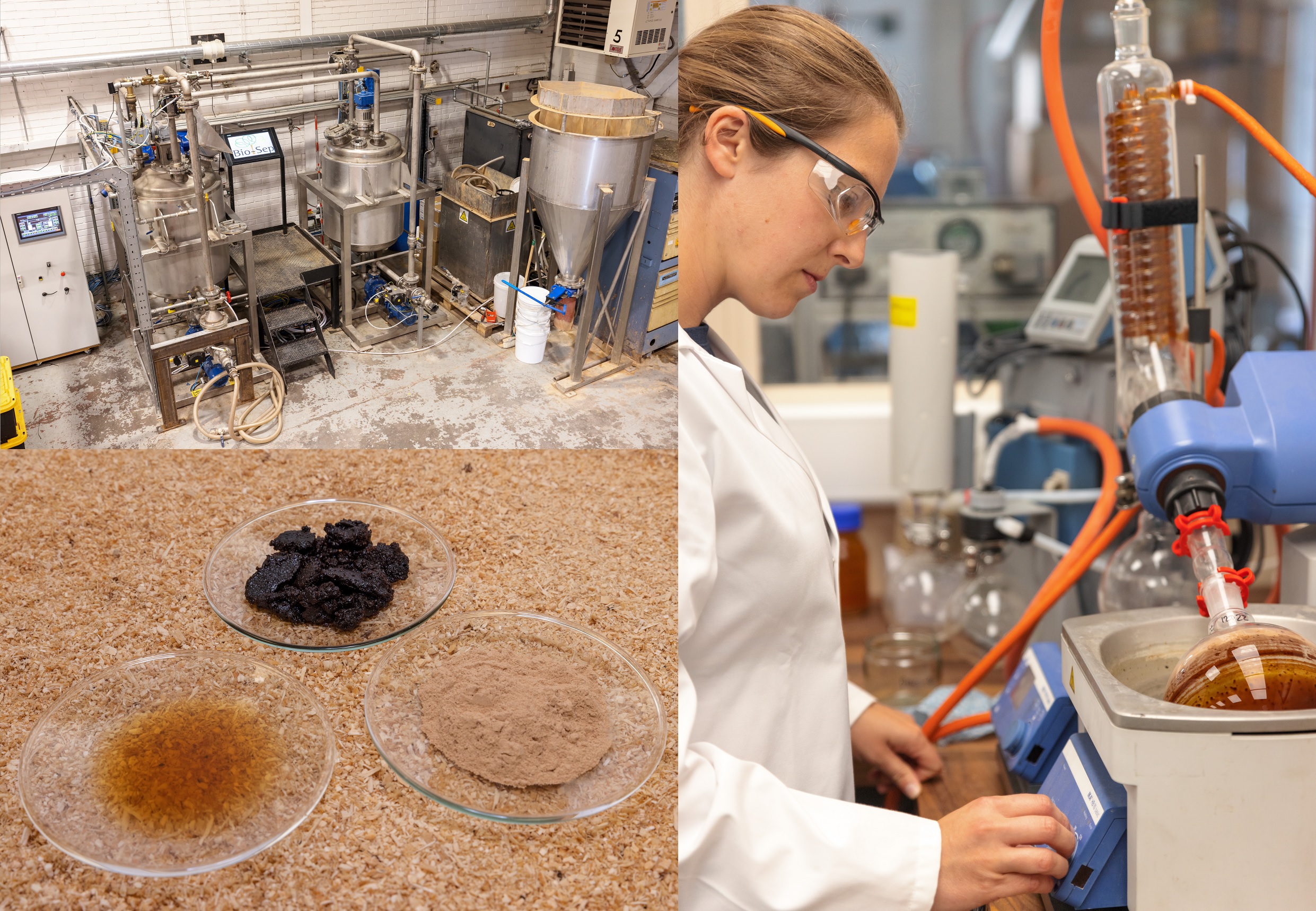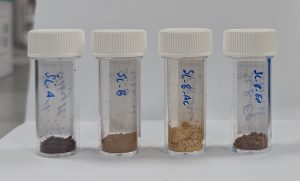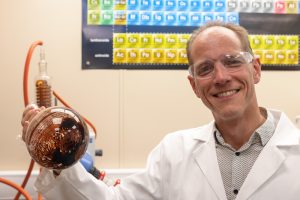
Bio-Sep (now Sonichem) Launches new Joint Industry Project to Fuel the Green Revolution
Bio-Sep (now Sonichem) has begun an exciting joint industry project which aims to develop renewable, bio-sourced alternatives for existing petrochemically-derived platform chemicals, ultimately helping to meet the worldwide demand for clean technologies and contributing to net-zero carbon goals. The new venture is in collaboration with the Innovation Centre for Applied Sustainable Technologies (iCAST), which includes prestigious institutions such as the University of Bath and the National Composites Centre (NCC).
Bio-Sep specialises in the conversion of non-food, lignocellulosic biomass generated by agriculture and forestry into high-value biochemicals, using its unique, low energy biorefinery process. It produces a novel, non-sulfonated lignin with enhanced reactivity and low molecular weight. This new product and exclusive separation process have great potential for the large-scale manufacture of sustainable biochemical substitutes that can be used in multiple commercial applications, such as the composites and construction industries. The joint industry project aims to extensively test the properties and performance of the products, both as part of biobased composites and as a cement admixture.
Dr Andrew West, Chief Chemist at Sonichem (previously Bio-Sep), explained: “This interdisciplinary R&D project will allow us to develop and demonstrate potential applications for our non-sulfonated lignin and biorefinery process. We are very much looking forward to working with our valuable partners within iCAST, and benefiting from their global expertise and extensive knowledge in bio-based materials chemistry and composites manufacture.”
Dr Andrew West Tweet
Professor Matthew Davidson, iCAST Director, added: “We are delighted to be working with Bio-Sep to accelerate innovation in this important area. It is exactly the sort of collaboration that iCAST was designed to undertake, and one of the first of around 50 joint industry projects that we plan to deliver in the next two years. By bringing together iCAST’s expertise in materials and manufacturing with innovative companies such as Bio-Sep, we aim to accelerate the deployment of sustainable technologies into commercial applications. This will in turn contribute to achieving the UK’s net zero and Clean Growth targets.”
Professor Matthew Davidson Tweet
Tim Young, Head of Sustainability at the National Composites Centre, said: “Being part of the Bio-Sep project will enable us to assess the suitability of a highly innovative, low carbon, composite material. The NCC team looks forward to assessing the feasibility of the material for use in industrial applications using our design, manufacturing and quality assessment expertise alongside our customer network, to help the material’s route to market. We are delighted to support Bio-Sep with its exciting sustainability offering for the composites marketplace, and to be part of the consortium of partners, pooling expertise and knowledge in this growing specialist area.”
Tim Young Tweet
Early results of the project are encouraging, suggesting that in the near future, composites and construction industries could make use of a low-carbon, renewable material, further displacing petrochemicals and improving their operational sustainability.
About iCAST
The Innovation Centre for Applied Sustainable Technologies (iCAST) is a unique collaboration set to deliver agile innovation in green, sustainable technologies. Bringing together experts across all the innovation stages, it focusses on bringing together industry and academia to translate discoveries into commercial application. iCAST is a partnership between the universities of Bath and Oxford, the High-Value Manufacturing Catapults (National Composites Centre and Centre for Process Innovation), the Swindon and Wiltshire Local Enterprise Partnership and SETsquared. This project is funded by Research England. icast.org.uk / @icastinfo
About the National Composites Centre
The National Composites Centre (NCC) is the UK’s world-leading composite research and development facility; where innovators come when they need to make things lighter, stronger, smarter and more sustainable. Its key focus areas are Composites, Digital Engineering, Hydrogen and Sustainability. With access to ‘beyond’ state-of-the-art technology and the best composites engineering capabilities in the world, the NCC collaborates with customers to solve the most complex engineering challenges of our time. Part of the High Value Manufacturing Catapult, the NCC works across all manufacturing sectors and has forged strong links with aerospace, energy, defence, space, construction, infrastructure, auto, rail, marine and biomedical. It works with organisations across the board from micro enterprises and SMEs to disrupters, the supply chain and OEMs, providing businesses with a de-risked environment to design, develop, test and scale their ideas and get them to market fast. For more information visit https://www.nccuk.com/







3 Comments
[…] a Press releaseDr. Andrew West, Chief Chemist, is enthusiastic: “This interdisciplinary R&D project will […]
[…] un communiqué de presse, le Docteur Andrew West, chimiste en chef, est enthousiaste : « Ce projet de R&D […]
[…] awarded a £2.5 million grant to fund the building of its first-ever pilot plant. It has also won iCAST research awards, as well as a Scottish innovation award with Glasgow University, and is leading a consortium that […]
Comments are closed for this article!